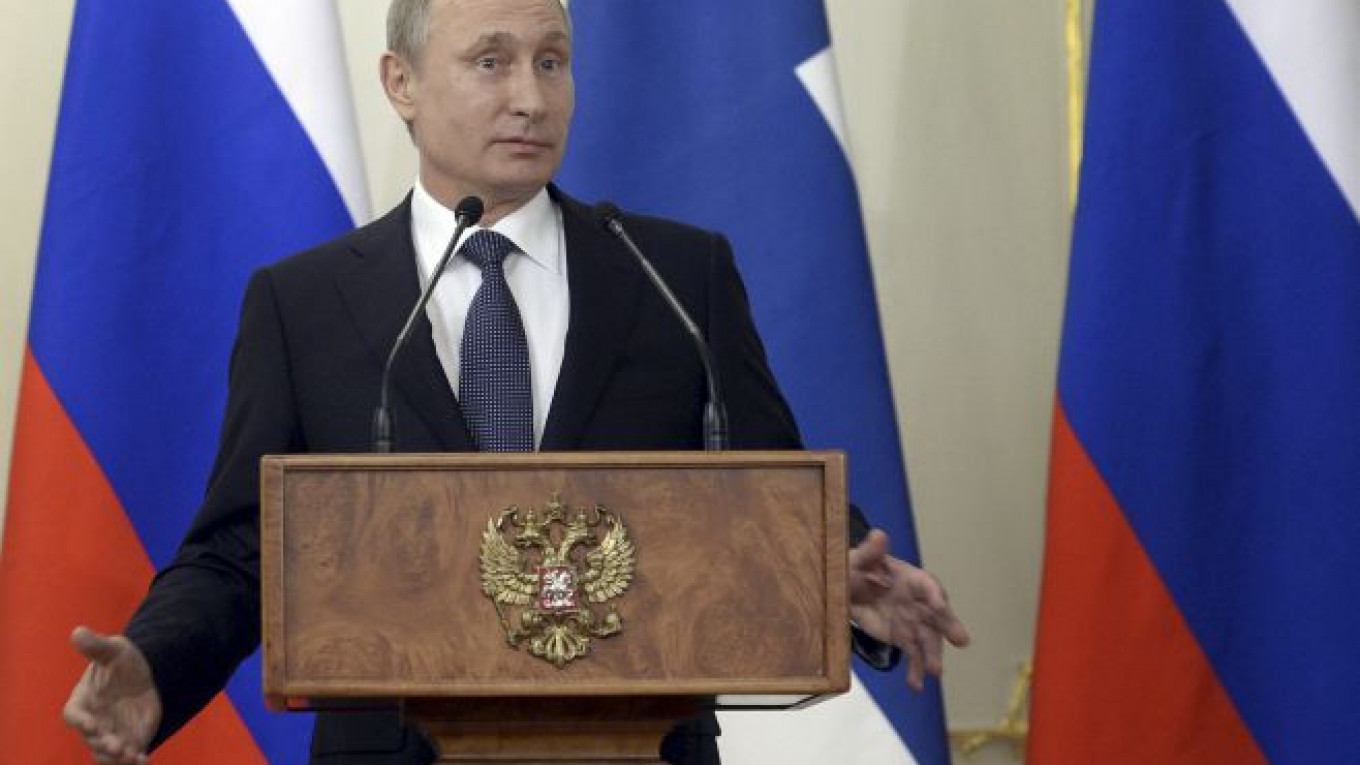When President Vladimir Putin speaks before thousands of business leaders and policymakers assembled for the St. Petersburg International Economic Forum (SPIEF) on June 18-20, he has an important opportunity to connect with a major international audience and to promote a more positive relationship with the West.
While SPIEF's agenda focuses on economic relations, Putin has not shied away from political issues there in the past. The main question in his audience's mind will be whether Moscow will press ahead with its pressures on Kiev or whether it will shift to serious implementation of the Minsk accords for resolution of the Ukraine conflict.
The Kremlin's future direction on Ukraine will inevitably have either a positive or negative impact on economic ties with the West. Turning to a positive page will not only allow consideration of lifting Western-imposed sanctions and Russian counter-sanctions, but also could set the stage for renewed positive economic engagement. Even more profoundly, this engagement should involve not only Russia but Ukraine and other post-Soviet states with their Western counterparts.
The second set of issues on the minds of Putin's audience is Russia's future economic stance. Is it focused, as the SPIEF agenda proposes, on "shared paths to stability and growth"? If so, Russian policy must commit credibly to pro-investment building blocks, including tax reforms that stimulate growth, legal reforms that protect private investors, and trade reforms that promote e-commerce and protection of intellectual property.
Thus far the gap has been too large between policy proposals and on-the-ground performance. Investors can see for themselves the record amount of capital flight from Russia, which reached over $151 billion in 2014, close to 10 percent of GDP which the Central Bank expects to shrink by up to 4.5 percent in 2015. Not unrelated is the unacceptably high level of corruption which has given Russia 136th place out of 178 in the Transparency International rankings, and candid recognition of this challenge would be a positive step in St. Petersburg.
The third set of issues is strategic in nature. Facing growing disputes with the West, the Kremlin has sought growing cooperation with the East, including trade relations with China and formation of a new Eurasian Economic Union. While the latter can provide advantages, realistically they cannot be substitutes for a full-fledged trade and investment relationship with Western countries. It is clear that Russia's economic prospects depend importantly on restoring the health of this relationship.
SPIEF's agenda captures this strategic choice well, through its business and regional consultations forums involving the Shanghai Cooperation Organization, BRICS and the G20. Putin's rational strategy is to engage with each of these forums — but to send a clear message that he recognizes the fundamental importance of the Western relationship.
Jan H. Kalicki is a public policy fellow at the Wilson Center in Washington, D.C. and co-editor of ''Russian-Eurasian Renaissance?''
A Message from The Moscow Times:
Dear readers,
We are facing unprecedented challenges. Russia's Prosecutor General's Office has designated The Moscow Times as an "undesirable" organization, criminalizing our work and putting our staff at risk of prosecution. This follows our earlier unjust labeling as a "foreign agent."
These actions are direct attempts to silence independent journalism in Russia. The authorities claim our work "discredits the decisions of the Russian leadership." We see things differently: we strive to provide accurate, unbiased reporting on Russia.
We, the journalists of The Moscow Times, refuse to be silenced. But to continue our work, we need your help.
Your support, no matter how small, makes a world of difference. If you can, please support us monthly starting from just $2. It's quick to set up, and every contribution makes a significant impact.
By supporting The Moscow Times, you're defending open, independent journalism in the face of repression. Thank you for standing with us.
Remind me later.






